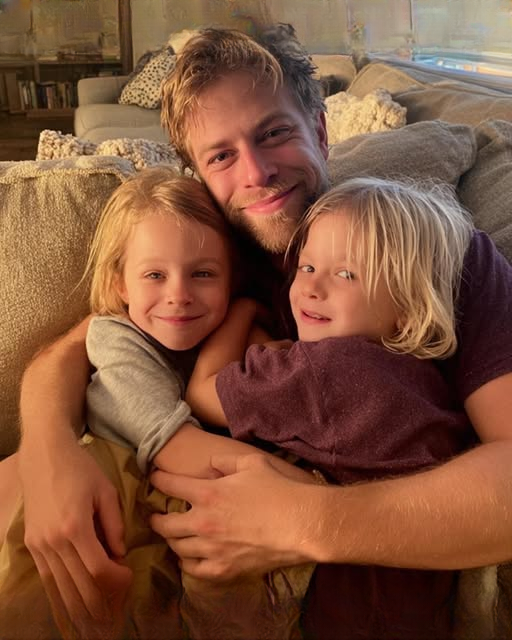Two years ago, my wife, Anna, walked out on me and our four-year-old twins, Max and Lily. She didn’t scream or plead—she just grabbed a suitcase, looked me square in the eye, and said, “I can’t do this anymore.” Then she was gone.
That moment seared into my memory like a permanent scar. One day, we were a family struggling together; the next, I stood in a silent apartment with two crying kids and a future that suddenly felt empty.
It all began when I lost my job. I’d been a software engineer at a promising tech firm that collapsed after shady financial dealings. One week I was earning six figures, the next I was carrying a cardboard box of my belongings down a crowded sidewalk, unsure how to tell Anna we were broke.
Anna had always been composed, immaculate—hair perfect, suits crisp, words measured. Even in the hospital giving birth to our twins, she looked like a magazine cover. I used to admire that discipline. I thought it meant strength. I was wrong.
The day I told her about the layoff, I saw something flicker in her eyes—fear, maybe disgust. Within weeks, bills piled up, tension hardened into silence, and then one night she broke it with those five words that changed everything:
“I can’t do this anymore.”
The first year without her was brutal. Exhaustion, loneliness, and financial strain nearly crushed me. I picked up rideshare shifts at night and grocery deliveries during the day, sleeping in fragmented bursts when the twins finally drifted off. Max and Lily cried for their mother every night. I told them she was away for work. She never called.
My parents were my lifeline. They watched the twins when I couldn’t, brought home-cooked meals, and reminded me what family truly means—showing up, even when it hurts.
Slowly, I found my footing. A freelance coding project led to a full-time remote role at a cybersecurity firm. The pay wasn’t six figures, but it was steady and, more importantly, gave me time with my children. We moved to a smaller, brighter apartment. I cooked, exercised, read bedtime stories without distraction. For the first time in years, we weren’t just surviving—we were happy.
Then, exactly two years after she left, I saw Anna.
I was at a nearby café, coffee steaming beside my laptop, when I spotted her. She looked… different. The polished, untouchable woman I knew was gone. Her hair dull, coat threadbare, hands trembling as she wiped her tears.
Pity flickered, then hardened into something colder as I remembered the twins crying for her and the silence that followed. Yet I couldn’t look away. Perhaps she felt my gaze, because she met my eyes, and shock—and then shame—flooded her face.
I should have walked away. But some part of me, carrying those two years of memory, made me stand and approach her.
“Anna,” I said quietly. “What happened to you?”
Her hands twisted. “David… I didn’t expect to see you here.”
“You left us with nothing. And now you’re crying in a coffee shop. Explain.”
“I made a mistake,” she whispered.
I laughed bitterly. “A mistake? Walking out on your family was a choice.”
“I know,” she said, tears spilling. “I thought I could handle things. I panicked. I lost my job weeks later, my support vanished. I’ve been alone ever since.”
I watched her unravel. This woman, once untouchable, now hollow.
Finally, she whispered, “I miss you. I miss the kids. I want to come home.”
Her words hung between us, heavy and desperate. I looked her in the eye.
“You miss us because you have nothing now. You ignored the twins when they needed you. You didn’t call, didn’t write. And now you want back because life knocked you down.”
She reached for my hand, trembling. “Please, I want to make it right. I’ve changed. I’ve thought… I just—”
I pulled away. “You haven’t changed. You left when life got hard. What happens next time?”
She sobbed openly. I stood, looked down at her one last time, and said, “You chose your freedom. Now live with it.”
That night, Max and Lily played, laughed, and showed me the small wonders of life: a worm at preschool, a drawing of the three of us at the park. “It’s us, Daddy,” Lily said, grinning.
I smiled. “It’s perfect, sweetheart.”
Later, after tucking them in, I reflected on Anna—how she’d traded her family for a fantasy that crumbled. I felt anger, yes, but mostly clarity. We were okay now. Better than okay. I was rebuilding from ashes—for Max and Lily, not for her.
Love isn’t just a feeling; it’s a responsibility. She forfeited hers.
Somewhere, she may still replay that day, wishing for what she left behind. But I am not broken. I am a father, a protector, and a man who chose to keep building, brick by brick, a life of resilience, joy, and presence.
